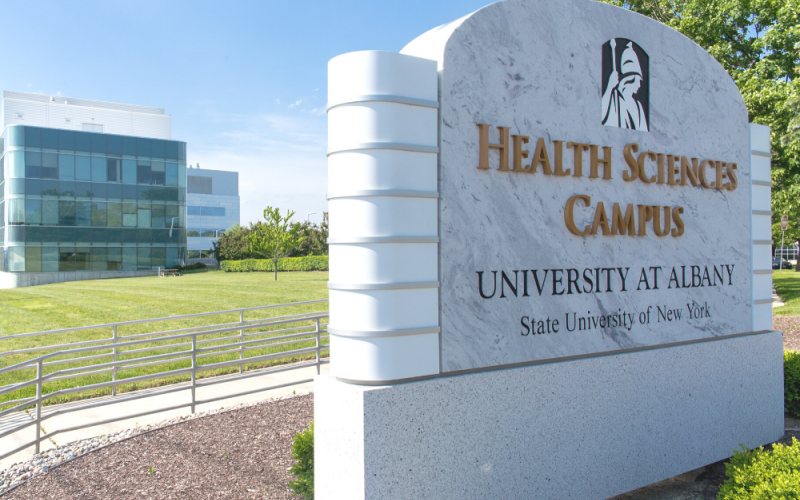UAlbany Receives $1 Million for Public Health Modeling Center

UAlbany is the new home of an applied modeling center designed to aid the Centers for Disease Control and Prevention (CDC) and state and local public health organizations in developing, implementing and altering public health initiatives.
The Coalition for Applied Modeling and Prevention (CAMP) will be based at UAlbany’s School of Public Health (SPH) beginning this month, thanks to a $1 million grant from CDC’s Epidemiologic and Economic Modeling Agreement (NEEMA). Led by Eli Rosenberg, an associate professor of Epidemiology and Biostatistics, CAMP develops epidemic and economic models to predict the answers to important public health questions in the areas of HIV, viral hepatitis, sexually transmitted diseases, tuberculosis and adolescent health.
The funding, which is renewable for four additional years, enables the University to serve as the central hub for a national collaboration between CDC and other universities including Emory University, Johns Hopkins University, the University of Washington, Georgia State University and the University of California at San Diego.
Rosenberg notes that public health questions often pertain to whole populations. For that reason, research on how a new program or policy’s implementation will affect disease transmission often requires model-based analytical approaches. The CDC, state and local health departments, and other public health organizations can use predictions from models, found in papers and/or interactive tools, to influence how they develop, implement and alter public health initiatives on the ground.
This grant is an extension of previous funding; for the past five years, CAMP was based at Emory University where Rosenberg was a co-principal investigator. Several influential works were published during the previous funding period, including ones that led to Hepatitis B vaccination policy changes, created first estimates of the state-level rates of HIV among men who have sex with men and of Hepatitis C among all adults, and systematically evaluated how to reduce tuberculosis in the four highest-burden states.
“The end goal is here is to help organizations at the national, state and local levels to develop policies and implement practices that can improve public health,” said Rosenberg. “We’ll continue to provide influential and information tools and results that these organizations can use to tackle public health problems in their communities.”
David Holtgrave, dean of SPH, will serve as CAMP’s Director of Economic Modeling. Researchers involved in CAMP are interdisciplinary, with experts including economic and infectious disease modelers, and a team of public health and policy advisors representing the leadership from health departments and community organizations and former federal health leadership.
The funder, NEEMA, is an initiative of the CDC’s National Center for HIV/AIDS, Viral Hepatitis, STD, and TB Prevention.
Original article: https://www.albany.edu/news/92519.php


